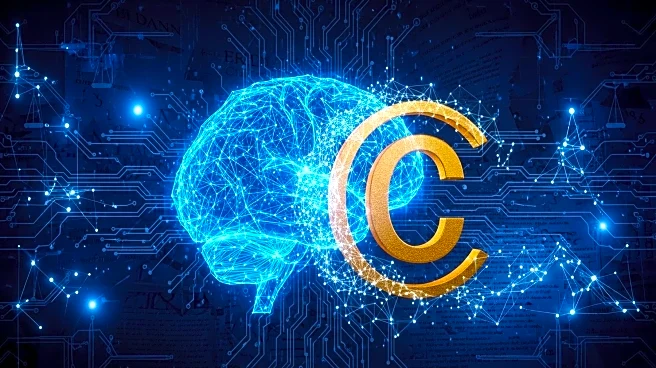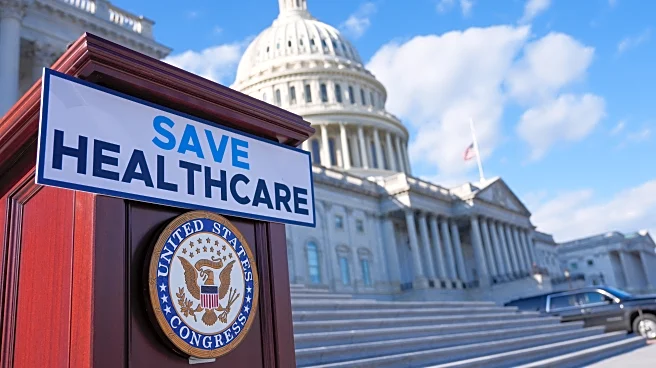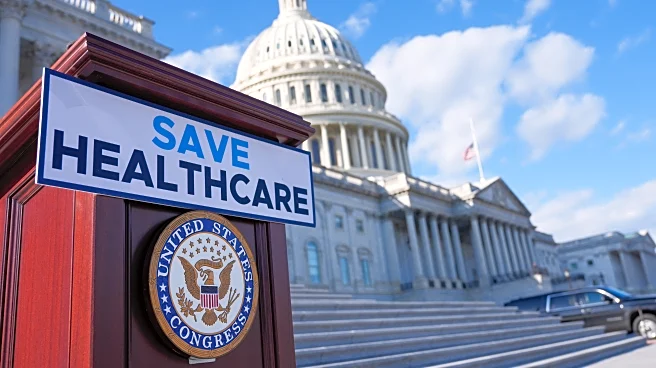What is the story about?
What's Happening?
The rise of generative artificial intelligence (AI) is challenging traditional intellectual property (IP) frameworks, particularly in the realm of trademarks and copyrights. AI's ability to create logos, slogans, and other brand elements in seconds has led to questions about ownership and protection of these AI-generated assets. The U.S. Copyright Office has stated that works created entirely by machines without human input cannot be copyrighted, leaving a gray area for trademarks. This situation is causing business leaders, in-house lawyers, and boards of directors to navigate a new frontier with outdated legal frameworks. The U.S. Patent and Trademark Office has issued guidance emphasizing the need for human oversight in AI-assisted trademark and patent filings, highlighting the legal complexities involved.
Why It's Important?
The implications of AI on IP law are significant for businesses and legal professionals. Companies risk launching products with AI-generated brand identities that may not be legally protectable, potentially leading to costly legal disputes. This uncertainty can affect brand identity and customer trust, especially for small businesses. Legal professionals face the challenge of ensuring compliance with existing laws while adapting to new technologies. The ongoing development of AI technologies necessitates a reevaluation of IP laws to protect both creators and consumers. As AI continues to produce content that may infringe on existing IP, the demand for legal expertise in this area is expected to grow, ensuring job security for lawyers but also increasing their workload.
What's Next?
Businesses and legal professionals must collaborate to develop governance frameworks for the use of AI in brand creation. This includes building cross-disciplinary teams and creating clear policies for AI usage. Companies are encouraged to strengthen their brand identities and ensure they are distinct and legally protected. The legal community will likely see increased demand for guidance on AI-related IP issues, prompting further discussions on adapting IP laws to accommodate technological advancements. As AI technologies evolve, ongoing dialogue between legal experts, policymakers, and industry leaders will be crucial to address these challenges effectively.
Beyond the Headlines
The ethical and cultural implications of AI-generated content extend beyond legal challenges. The ability of AI to mimic human creativity raises questions about the value of human input in creative processes. Additionally, the potential for AI to produce infringing content highlights the need for ethical AI governance and responsible use of technology. As AI becomes more integrated into business operations, companies must balance innovation with ethical considerations to maintain consumer trust and uphold brand integrity.















